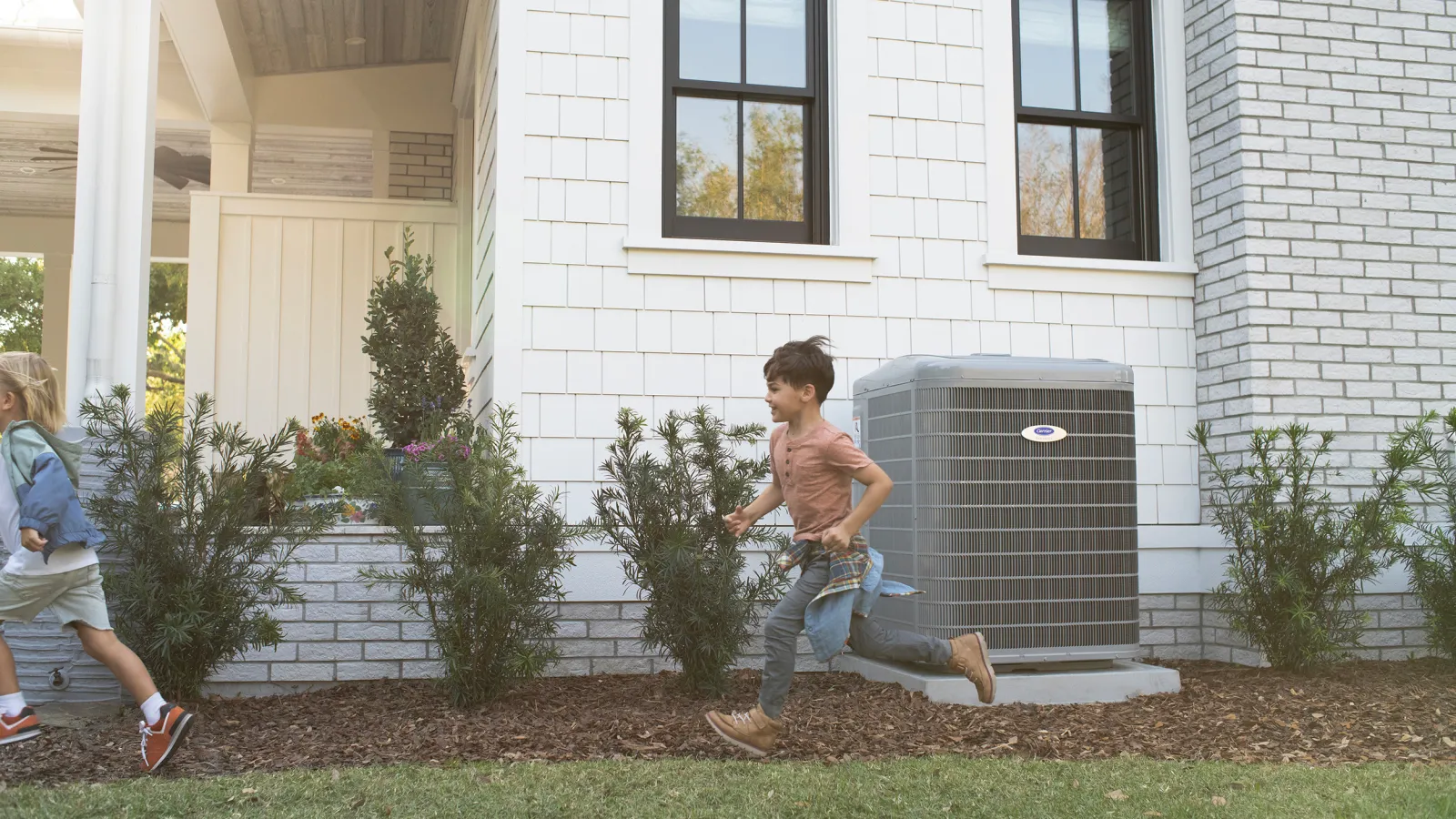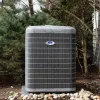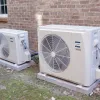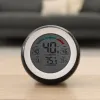Most HVAC problems come down to one of two different things. Either your air conditioner isn’t working in summer, or your furnace isn’t working in winter. When one or the other happens, you might be wondering whether you should repair or replace your HVAC system.
Most people want the answer to be “repair,” and it often is! However, there are other times when it makes more sense to replace an old system with a new one.
Let’s explore some of the most common HVAC issues our team encounters in Atlanta-area homes. First, we’ll explore problems with air conditioners, furnaces, and heat pumps, all of which can be repaired. Then we’ll consider those times when you really ought to replace your HVAC system.
These HVAC issues can be repaired
If your HVAC system isn’t running, there’s often a way to fix it. Here are common air conditioner and furnace/heat pump problems that we can usually repair:
When your air conditioner won’t cool your home
Maybe there’s no cold air coming out of your supply registers. Or maybe you can’t get the system to turn on at all. Most of the time, it’s due to one of the following problems:
- Blown fuse: This is the fuse connected to your thermostat. When it goes bad, the fix is to replace the bad one with a new fuse. Problem solved.
- Blown transformer: When you blow a transformer, a bad contactor in the outdoor unit is a common culprit. You’ll have to replace the bad transformer and the contactor. If a bad contactor didn’t cause the problem, you might have some other kind of wiring issue that needs to be addressed.
- Failed capacitor: Most outdoor units contain at least two capacitors: a start capacitor and a run capacitor. Both of them will fail eventually. When one of them does, you won’t have AC. An HVAC pro will know how to replace them safely and properly.
- Low refrigerant levels: This is a problem that can sometimes be repaired, but not always. If you have a refrigerant leak at a valve, we might be able to tighten the valve to stop the leak. Other times, we can braze the refrigerant line set to repair a leak. Then we recharge the system with refrigerant. However, there are some occasions when a refrigerant leak cannot be repaired. We’ll cover those in just a bit.
- Clogged condensate line: If your condensate line gets blocked for some reason, water will pool up and trip your system’s float switch (or, if we installed your system, the wet switch). The system will shut off until someone unclogs the drain line and cleans up the water.
When your furnace or heat pump won’t heat your home
Some of these heating season problems, all of which are repairable, are furnace specific. Others only apply to electric heat pumps.
- Improperly calibrated equipment: All furnaces need to be calibrated during installation. If they’re not calibrated properly, they can burn too much gas. This won’t always make the furnace quit, but you will notice really high gas bills. A lot of times, this problem causes the furnace to overheat. You’ll need a pro to recalibrate your furnace.
- Dead blower capacitor: Your furnace fan has a capacitor that turns it on. These eventually fail and need to be replaced.
- Dead starting components (heat pump only): If you heat your home with a heat pump, your system uses the same capacitors for heating that it uses for air conditioning. When they go bad (and they definitely will), have them switched out.
- Bad inducer draft motor: This component clears leftover gas from your heat exchanger after a run cycle. It can burn out or just get dirty. When it gets too dirty, a safety switch will turn your furnace off. The solution? Replace the motor.
- Cracked heat exchanger: This problem usually won’t make your furnace quit working, but it’s a really dangerous problem to have! Cracks in your heat exchanger allow combustion gases to escape – possibly into your living space. While we don’t really “repair” cracked heat exchangers, it’s sometimes possible to replace them without replacing your entire furnace. Occasionally, cracked heat exchangers cause the flame to roll out and trip the safety switch, shutting off your furnace. However, you usually won’t know you have this problem until we perform a combustion safety test.
Maintenance reduces the need for HVAC system repair.
All of the above HVAC problems can usually be repaired. That being said, it’s important to do everything you can to prevent them from happening. And the best way to prevent the need for HVAC repairs is through regular maintenance.
So, how regular is “regular?” At PV Heating, Cooling & Plumbing, our service agreements include two inspections per year: one before the cooling season and one before the heating season. To the extent possible, we check every potential problem area (including the ones above) and alert you to potential issues before they become issues.
As far as DIY maintenance is concerned, just remember to change or clean your air filters per the manufacturer’s instructions. For clients with service agreements, we also replace air filters and provide extra ones to switch out between inspections.
This is when you should replace your HVAC system
Ok, so there are other situations when your HVAC system either cannot or shouldn’t be repaired. Here are some of the most common ones.
Your system uses R-22 refrigerant and has a leak.
Before 2010, many new HVAC systems still used R-22 refrigerant. Nowadays, no new HVAC systems use R-22, and the EPA will prohibit its production after December 31st, 2019.
So, when your old R-22 air conditioner or heat pump leaks, it doesn’t make sense to fix the leak, replace the coil, or fill the system with new R-22. For one thing, the price of R-22 is extremely high. It also just doesn’t make sense to recharge a system with an expensive, obsolete product – especially when you consider that an old HVAC system is likely to leak again.
The best, most cost-effective thing to do when you have an R-22 refrigerant leak is replace the air conditioner or heat pump.
The compressor failed on your old AC.
When a compressor dies and it’s out of warranty, the repair is so expensive that it usually makes more sense to just replace the air conditioner. That’s especially true when the system used R-22 refrigerant.
Your new AC will likely come with a 10-year equipment warranty. If the compressor (or any other component) fails in the next few years, you won’t have to pay for the new part.
You’re already planning to replace either the furnace or the AC (and both are old).
Sometimes, when you replace an old air conditioner, it’s a good idea to replace your old furnace at the same time. Even if the furnace still works, it’s getting toward the end of its life. When you know you’ll have to replace it soon anyway, you might as well replace it at the same time you replace the AC. That way, you save on labor costs.
Recurring breakdowns are getting costly.
This is the same thing that happens with old cars. At some point, it becomes unreasonably expensive to, say… replace the transmission in your 1991 Plymouth Sundance. The same thing can happen with your 2003 Goodman heat pump when there’s a leak in the evaporator coil. Eventually, the problems become so frequent and expensive that it makes more financial sense to replace your HVAC system.
The existing system is 12 to 15 years old…
…and you need HVAC you can depend on. Older systems – and, in particular, those systems that haven’t been serviced regularly – tend to break down when you push them to their limits.
And you know when we tend to push HVAC systems to their limits? During the hottest and coldest months of the year… when we need them the most.
When July rolls around and it’s 92+ degrees outside every afternoon, you don’t want to cross your fingers and hope your aging AC will blow cold air. You need to know it’s going to work.
Conserving energy is a priority.
Many Atlanta-area homeowners are concerned about the impact their consumption has on the environment. They’re also keen to save money on utility bills.
If that sounds like you, replacing your old HVAC system may be a good idea. Older HVAC systems use way more energy than today’s energy-efficient models. When your AC and furnace are over 12 years old and you want to reduce your environmental impact, replacement makes sense.
HVAC problems? Give us a shout!
We’re here to help you determine whether HVAC repair or replacement makes the most sense. If you live in metro Atlanta and you’re having trouble with your air conditioner, furnace, or heat pump, contact us today to get to the bottom of the problem!






